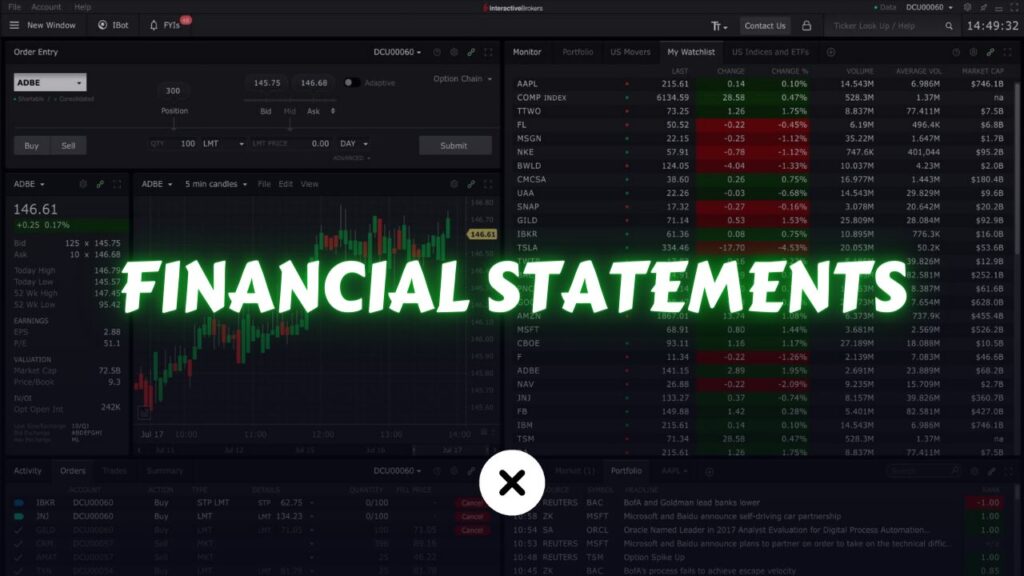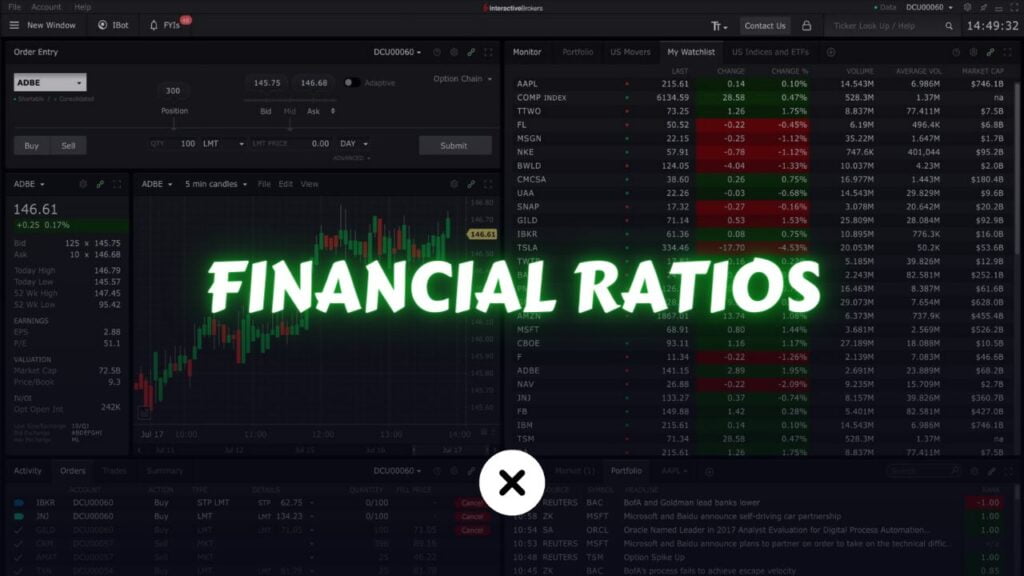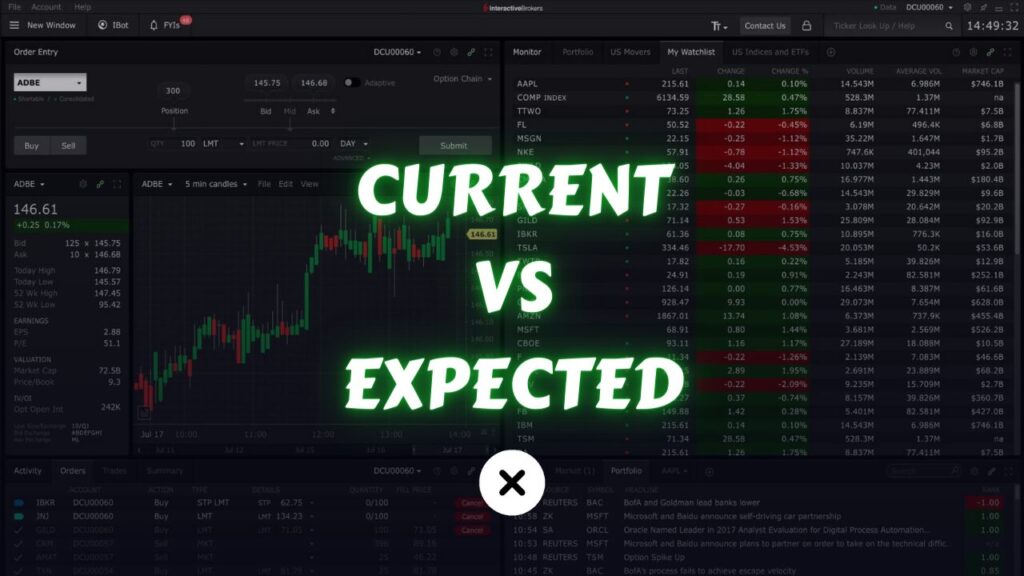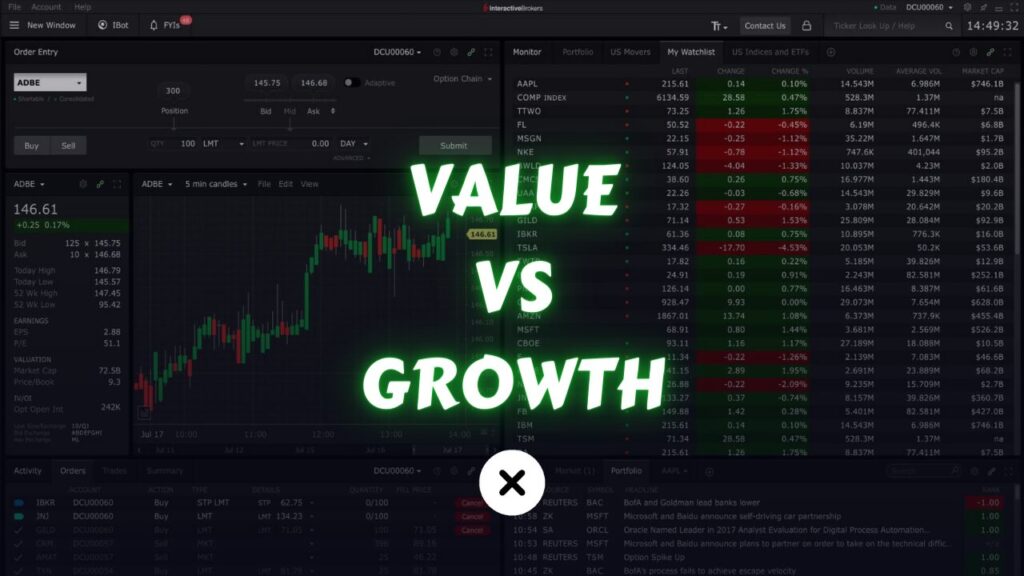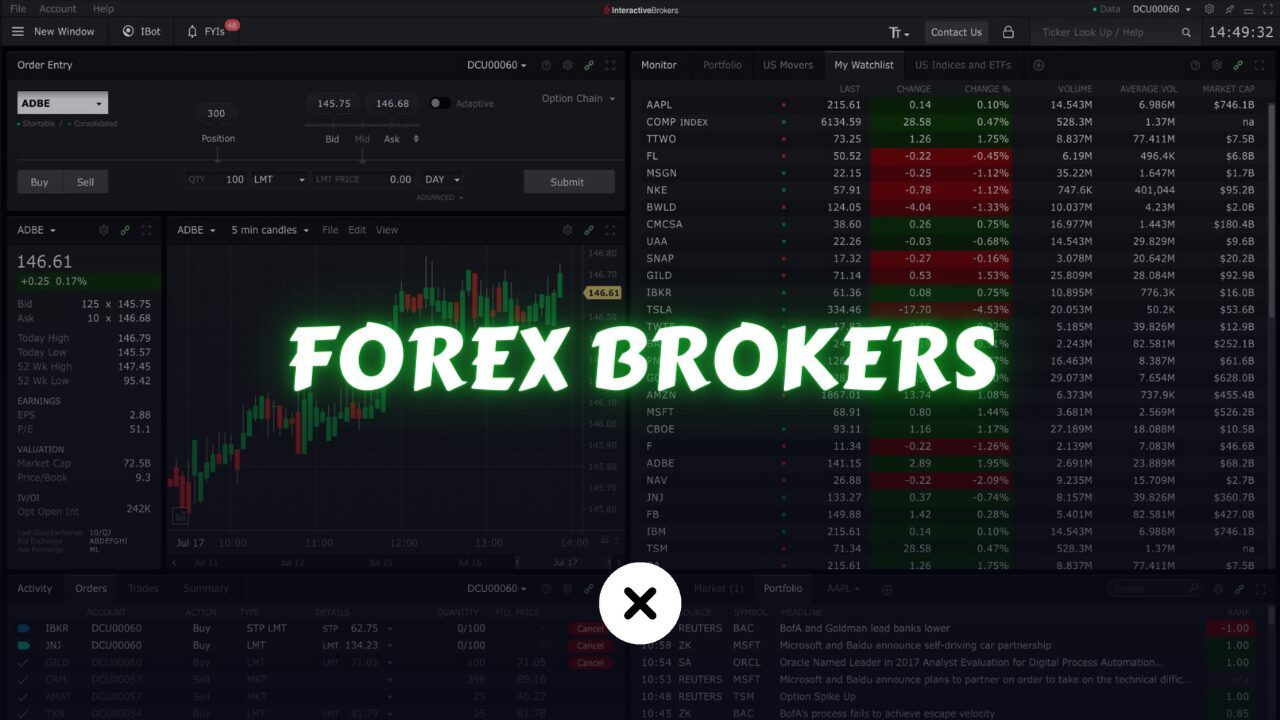
The foreign exchange market, or forex for short, is the world’s largest financial market. With trillions of dollars being traded daily, it presents a vast opportunity for potential profit. But before you dive into this exciting arena, selecting the right forex broker is crucial. A good broker can be the difference between a smooth, successful trading experience and a frustrating, costly one.
Your choice should align with your experience level, trading strategy, and personal preferences. To ensure you pick a reliable and suitable platform, consider the following key factors when evaluating forex brokers:
Regulation and Licensing
Prioritize safety by choosing a broker regulated by reputable financial authorities like the US Commodity Futures Trading Commission (CFTC), UK Financial Conduct Authority (FCA), or Australian Securities and Investments Commission (ASIC).
Check if your local financial market regulator mandates brokers to hold local licenses.
Spreads and Fees
Compare trading costs, including spreads, commissions, and financing rates. Lower spreads are generally more favorable.
Certain brokers might provide narrower spreads while applying commissions to each trade, and this can be advantageous for day traders who pay close attention to small percentages. On the other hand, swing traders may opt for commission-free accounts with slightly wider spreads.
A Book vs B Book Brokers
A Book and B Book are terms often used in the context of Forex and other financial trading to describe two different types of order execution methods used by brokers. These methods have implications for how brokers handle client orders and manage their own risk.
What is “A Book Broker”?
An “A Book” broker is also known as a Straight Through Processing (STP) broker. These brokers directly route their clients’ orders to the interbank market or liquidity providers.
A Book brokers do not take the other side of their clients’ trades. Instead, they act as intermediaries, matching their clients’ buy orders with someone else’s sell orders and vice versa.
The broker’s profit in this model typically comes from spreads (the difference between the bid and ask price) and sometimes a small commission for facilitating the trade.
A Book brokers generally prefer clients who engage in regular, profitable trading because they don’t profit from clients’ losses.
What is “B Book Broker”?
A “B Book” broker is also known as a Market Maker. B Book brokers often act as the counterparty to their clients’ trades.
In the B Book model, the broker doesn’t route client orders to the broader market. Instead, they internally manage these trades. If a client buys a currency pair, the broker may take the other side of the trade by selling the same currency pair.
B Book brokers may profit from their clients’ losses, creating a potential conflict of interest. This is sometimes referred to as “trading against the client.”
B Book brokers may use various risk management techniques to balance their exposure, such as hedging or offsetting client positions in the wider market. However, they still carry some level of risk if a large number of their clients experience significant losses.
It’s important to note that the choice between A Book and B Book models can affect the trading experience and potential conflicts of interest. A Book brokers are often seen as offering a more transparent and fair trading environment because they don’t have a direct interest in their clients’ losses. B Book brokers, on the other hand, maybe more inclined to manage their exposure and may have a higher risk of potential conflicts.
Traders should carefully research and understand the business model of a broker before choosing to trade with them and consider their own preferences and risk tolerance when selecting a broker.
Regulatory authorities in the financial industry also have guidelines in place to ensure transparency and fair practices in both A Book and B Book brokerage models.
Leverage
Consider your risk tolerance when dealing with leverage. It can amplify gains but also increase losses.
Look for brokers that allow clients to set their leverage levels manually to align with your risk management strategy.
Many brokers provide generous leverage to lure traders, but it’s essential to understand that using extremely high leverage, such as 1:1000 or greater, can pose significant risks to your account capital. Instead, it’s advisable to seek a more suitable leverage level, ideally below 1:100 when trading in the forex market.
Trading Platform
The trading platform is crucial, whether you’re a beginner or an experienced trader.
Beginners should seek user-friendly platforms with straightforward navigation.
Advanced traders may require access to complex technical analysis tools. MetaTrader 4 (MT4), MetaTrader 5 (MT5) and ctrader are popular choices among forex brokers.
Deposit and Withdrawal Options
Ensure the broker offers convenient and secure payment methods for both funding and withdrawing from your trading account.
Demo Account
For novice traders, a demo account is essential. It allows you to practice and learn without risking real money, using virtual funds for trading.
Remember that your choice of a broker is not set in stone, and if you don’t find a perfect match initially, you can open accounts with different brokers. The most important thing is to avoid scam brokers that aim to defraud you.
Choosing a reputable and well-regulated broker is important for the safety of your funds and the integrity of your trading experience. Conduct thorough research and consider your individual needs when making your decision.
Now, let’s delve into the details of the top forex brokers one by one.
Best Brokers for Forex Trading
As said before, choosing the right forex broker relies on different things like how you prefer to trade, how much experience you have, and what you need exactly. Though there’s no one perfect choice for everyone, some brokers stand out because they’re known for being reliable, following the rules, having easy-to-use trading platforms, fair prices, and helpful customer service.
Here are some of the best brokers for forex trading:
Pepperstone

Account Minimum: $200
Fees: Spread cost; Overnight financing costs; Inactivity fees (after 12 months)
Pepperstone, founded in 2010, has swiftly risen to prominence as a top-tier forex broker that caters to the evolving demands of online traders. The company has built a stellar reputation within the industry for its unwavering commitment to transparency, innovation, and customer satisfaction.
Pepperstone is known for its dedication to providing a secure and efficient trading environment, making it a top choice for traders looking to access the forex market. The broker is duly regulated by reputable financial authorities, ensuring the safety of client funds and trustworthiness.
One standout feature of Pepperstone is its diverse range of offerings, which is highly appealing to traders of all levels, from novices dipping their toes into the world of online trading to experienced professionals seeking exposure to a broad array of financial products. With Pepperstone, you’ll have access to a wide selection of currency pairs, CFDs, and spread betting options, allowing you to diversify your trading portfolio.
Pros & Cons
Pros:
- Extensive range of offerings, including a vast selection of currency pairs and CFDs
- Strong regulation by ASIC (Australia) and FCA (U.K.)
- Focus on education and customer service, offering a wealth of resources for traders to enhance their knowledge
- Cutting-edge research tools and market analysis to support informed decision-making
- Client account protection, ensuring the safety of your funds
Cons:
- Not available for U.S. clients
- Minor differences between trading platforms, including cTrader and MetaTrader 4
- Slightly higher spreads for specific CFD indices
IC Markets
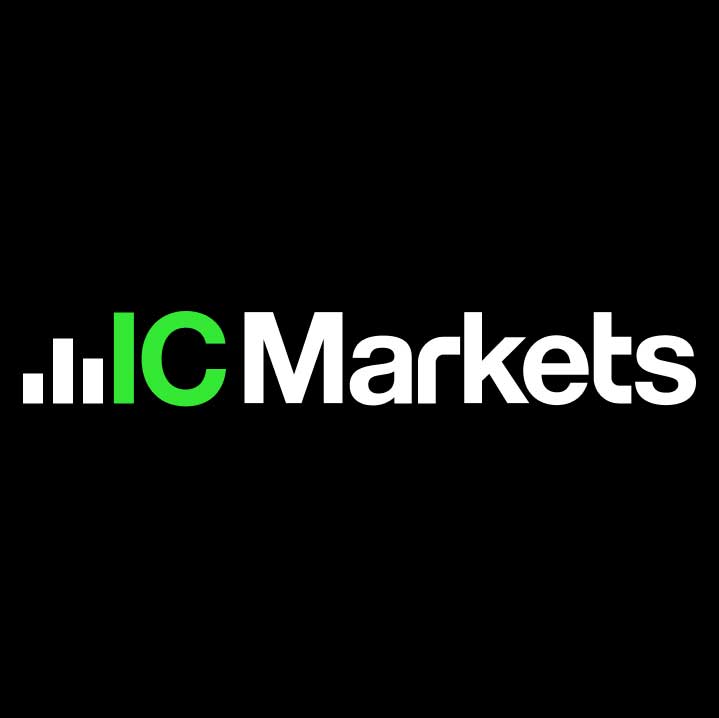
Account Minimum: $200
Fees: Raw spread cost; Commission for cTrader; Swap rates for overnight positions; Inactivity fees (after 6 months)
IC Markets, founded in 2007, is a well-known and respected Australian forex broker that has continuously adjusted to the changing dynamics of online trading. Pepperstone and IC Markets share many similarities.
The broker is well-regulated by ASIC (Australia), ensuring the safety of client funds and adherence to industry standards.
Traders can access a wide array of currency pairs, commodities, indices, and cryptocurrencies, allowing for an extensive and diversified trading portfolio.
Pros & Cons
Pros:
- A comprehensive range of offerings, including an extensive selection of currency pairs, commodities, indices, and cryptocurrencies
- Strong regulatory oversight by ASIC (Australia)
- A focus on education and customer service, providing valuable resources for traders to enhance their knowledge
- Cutting-edge research tools and market analysis, empowering traders to make informed decisions
- Client account protection, ensuring the security of your funds
Cons:
- Not available for U.S. clients
- Minor differences between trading platforms, including cTrader and MetaTrader 4
- Competitive spreads, but commissions may apply for cTrader users
OANDA
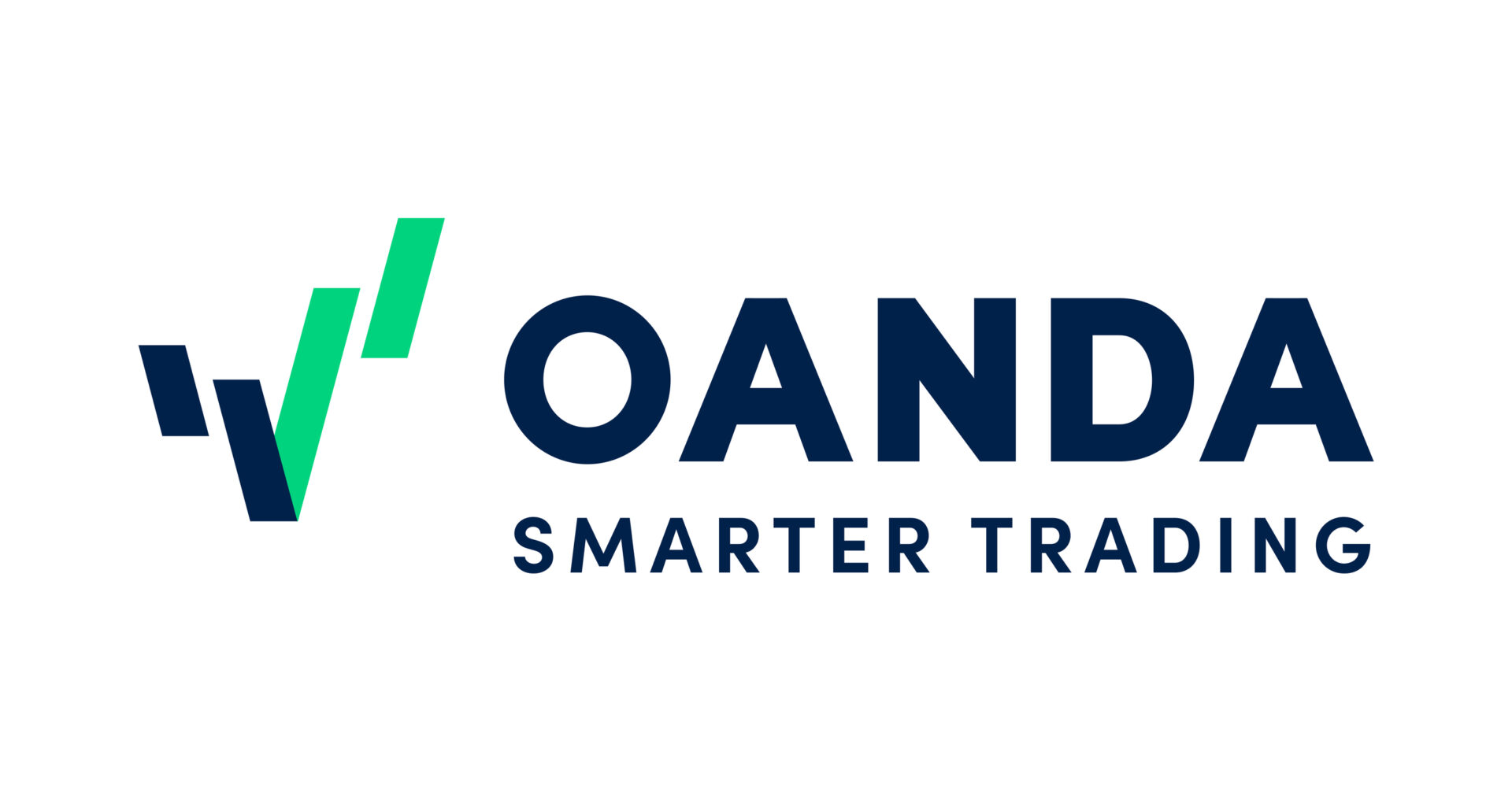
Account Minimum: $0
Fees: Spread cost; No commissions; Financing rates for overnight positions; No inactivity fees
Best for: Overall Forex Broker and Range of Offerings
OANDA, a pioneer in the world of online forex trading, was founded in 1996 and has since become a globally recognized and highly esteemed broker. The company stands out for its enduring commitment to providing traders with a versatile, transparent, and reliable trading experience.
OANDA is not only renowned for its comprehensive range of forex offerings but also for its focus on user-friendly platforms and education. The broker is regulated by multiple authorities, including the CFTC in the U.S. and the FCA in the U.K., providing an extra layer of security for client funds.
One of OANDA’s key strengths is its wide range of offerings, appealing to traders of all levels, from novices stepping into forex trading, CFDs, and spread betting, to experienced professionals seeking diverse financial products for their portfolios.
Pros & Cons
Pros:
- A wide array of forex and CFD offerings
- Multiple regulatory licenses, including CFTC (U.S.) and FCA (U.K.)
- Strong emphasis on education and customer service, offering a variety of resources for traders
- Industry-leading research tools and market analysis
- Client account protection and segregation of client funds
Cons:
- Not available for U.S. clients in certain states
- Differences between trading platforms, including OANDA’s proprietary platform and MetaTrader 4
- Slightly wider spreads for certain CFD indices
IG

Account Minimum: $250
Fees: Spread cost; Commissions for certain assets; Overnight financing rates; No inactivity fees
IG, a trailblazer in the online trading industry, has been empowering traders since its inception in 1974. As a globally acclaimed broker, IG has consistently evolved and adapted to meet the ever-changing demands of online traders.
IG is a renowned name on the London Stock Exchange (LSE) under the ticker symbol IGG. Unlike some other forex brokers, IG welcomes traders from various parts of the world, including the UK, Europe, and many other regions.
IG permits US clients to engage in currency trading exclusively, with CFD trading not accessible to them.
Pros & Cons
Pros:
- A wide array of offerings, including a vast selection of currency pairs, stocks, commodities, indices, and cryptocurrencies
- Regulated by FCA (U.K.) and other prominent authorities
- Strong emphasis on education and customer service, with an array of resources to enhance traders’ knowledge
- Cutting-edge research tools and market analysis to support informed decision-making
- Client account protection, safeguarding the security of client funds
Cons:
- CFDs Unavailable to U.S. clients
- Differences between trading platforms, including IG’s proprietary platform and MetaTrader 4
- Competitive spreads, but commissions may apply for some assets
FXCM

Account Minimum: $50
Fees: Spread cost; Commissions for certain accounts; Swap rates for overnight positions; Inactivity fees (after 6 months)
FXCM, established in 1999, is a seasoned and well-respected forex broker that has consistently adapted to the evolving landscape of online trading. The company is a prominent player in the forex industry and has established itself as a trusted name over the years.
While not listed on a stock exchange, FXCM boasts a strong reputation and track record within the industry. FXCM does not serve U.S. clients, in line with many forex brokers.
Pros & Cons
Pros:
- Comprehensive range of offerings, including a wide selection of currency pairs, indices, commodities, and cryptocurrencies
- Regulation by reputable authorities such as the FCA (U.K.) and ASIC (Australia)
- Strong emphasis on education and customer service, offering resources for traders to enhance their knowledge
- Access to industry-leading research tools and market analysis
- Client account protection and segregation of client funds
Cons:
- Unavailable for U.S. clients
- Differences between trading platforms, including the proprietary Trading Station and MetaTrader 4
- Marginally higher CFD spreads for specific indices
Interactive Brokers

Account Minimum: $0 (though $2,000 is recommended for forex trading)
Fees: Commission-based; Spread cost; Financing rates for leveraged positions
Interactive Brokers is a well-established name in the forex trading industry, offering a comprehensive suite of services to cater to the needs of both individual and institutional traders. With its inception dating back to 1978, Interactive Brokers has earned a solid reputation for reliability, technological innovation, and competitive pricing.
Regarded as one of the pioneers of electronic trading, Interactive Brokers boasts a sophisticated trading platform that provides direct access to global markets, advanced order types, and robust risk management tools. Traders benefit from transparent pricing, with commission-based fees and tight spreads ensuring cost-effective trading.
One of Interactive Brokers’ key strengths lies in its vast product offering, encompassing not only forex but also a wide range of asset classes such as stocks, options, futures, and bonds. This breadth of offerings appeals to traders seeking diversification and flexibility in their investment strategies.
Interactive Brokers (IBKR) allows forex trading globally, except in the U.S. where it is only available to institutional clients. Retail or professional clients in the U.S. can trade forex with IBKR if they meet the definition of an Eligible Contract Participant (ECP) with at least $10 million in assets.
While it might not be practical for many of us, it still holds the top spot in the industry, which is why it’s included on this list.
Pros & Cons
Pros:
- Extensive range of tradable assets, including forex, stocks, options, futures, and bonds
- Regulated by reputable authorities such as the SEC and FINRA in the United States
- Advanced trading platform with direct market access and sophisticated order types
- Competitive pricing structure with commission-based fees and tight spreads
- Access to global markets and exchanges, providing ample trading opportunities
Cons:
- Complexity of the platform may be daunting for beginners
- Minimum deposit of $2,000 recommended for forex trading
- Additional fees for data subscriptions and market data usage
- Limited educational resources compared to some other brokers
- US Retail Clients need to meet the definition of an Eligible Contract Participant (ECP) with at least $10 million in assets.
Conclusion
Selecting the right broker is crucial for success in Forex trading. Each of the mentioned brokers – Pepperstone, IC Markets, OANDA, IG, FXCM, and IBKR – offers unique features and benefits, catering to various types of traders. It’s important to consider your specific trading needs, including the currency pairs you want to trade, preferred platform, and risk tolerance. It’s worth noting that all of these brokers are reputable and well-regarded in the industry, providing reliable services to traders worldwide. Ultimately, the best broker for you is the one that matches your trading goals and preferences, leading to a fulfilling and profitable Forex journey.
